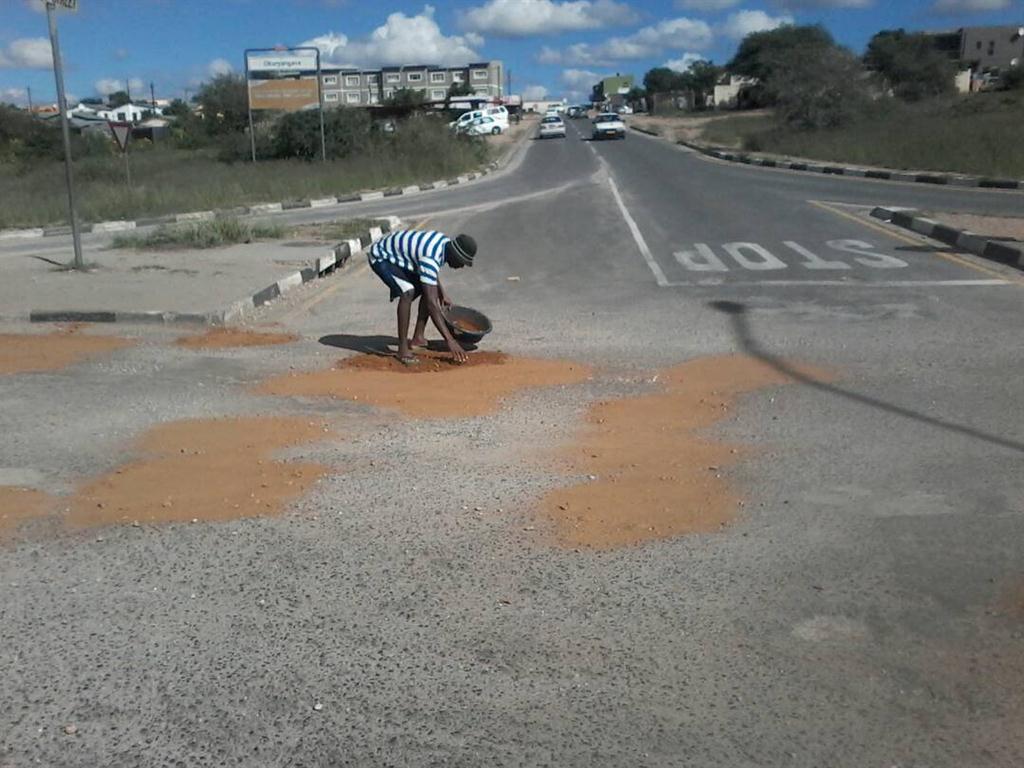City rehabilitates roads
Many sections of the City's 820km network of roads and streets have passed their original design life.
The City of Windhoek has signed a contract that will see more than 32 kilometres of its most in need roads being repaired in the coming months.
This is out of the City's approximately 820km of surfaced roads and streets.
In a media statement, the municipality noted that the recently signed contract with Tau Pele Namibia Construction was designed around stiff budgetary constraints and will focus on roads most in need of maintenance.
“The contract will mainly focus on the higher order roads and 1.2 kilometres will be in-situ recycled and sealed with a 19mm Cape seal. A further 31.5 kilometres will be resealed by means of a 13mm single seal and blinding layer,” the municipality said.
The decision on which roads to work on was based on annual visual assessments conducted on all the roads by a team of specialised engineers.
“The actual quantity of work to be put out on tender was also subject to budgetary constraints and only the highest priorities could be accommodated.”
The City highlighted the steep costs involved, which has prevented work on a more frequent basis.
“Under ideal conditions, preventative maintenance will be done on a regular basis to ensure the integrity of the waterproof seal, but this is basically impossible to do due to financial constraints.”
The type of sealing layer to be placed on top of the surfaced roads will depend on the type and volume of traffic, as well as whether there are a lot of turning movements.
The cost ranges from approximately N$454 000 per km for a 6.7mm single seal to N$1.64mil per km for a 35mm premix overlay.
In cases where the upper foundation layers of the road have deformed, either due to the ingress of water or continuous heavy traffic, or needs to be strengthened, the material can be recycled and cement added to increase the strength, and bitumen added to increase the resistance to water.
The cost to recycle the upper layer amounts to approximately N$2.65 million per km and then a new surfacing layer still needs to be placed on top of it.
In cases where the road has been allowed to fail completely, the only option is to reconstruct it completely at a cost of at least N$7.18 million per km.
The statement noted that the 820km network of roads and streets is ageing and many roads “have passed their original design life”.
This is out of the City's approximately 820km of surfaced roads and streets.
In a media statement, the municipality noted that the recently signed contract with Tau Pele Namibia Construction was designed around stiff budgetary constraints and will focus on roads most in need of maintenance.
“The contract will mainly focus on the higher order roads and 1.2 kilometres will be in-situ recycled and sealed with a 19mm Cape seal. A further 31.5 kilometres will be resealed by means of a 13mm single seal and blinding layer,” the municipality said.
The decision on which roads to work on was based on annual visual assessments conducted on all the roads by a team of specialised engineers.
“The actual quantity of work to be put out on tender was also subject to budgetary constraints and only the highest priorities could be accommodated.”
The City highlighted the steep costs involved, which has prevented work on a more frequent basis.
“Under ideal conditions, preventative maintenance will be done on a regular basis to ensure the integrity of the waterproof seal, but this is basically impossible to do due to financial constraints.”
The type of sealing layer to be placed on top of the surfaced roads will depend on the type and volume of traffic, as well as whether there are a lot of turning movements.
The cost ranges from approximately N$454 000 per km for a 6.7mm single seal to N$1.64mil per km for a 35mm premix overlay.
In cases where the upper foundation layers of the road have deformed, either due to the ingress of water or continuous heavy traffic, or needs to be strengthened, the material can be recycled and cement added to increase the strength, and bitumen added to increase the resistance to water.
The cost to recycle the upper layer amounts to approximately N$2.65 million per km and then a new surfacing layer still needs to be placed on top of it.
In cases where the road has been allowed to fail completely, the only option is to reconstruct it completely at a cost of at least N$7.18 million per km.
The statement noted that the 820km network of roads and streets is ageing and many roads “have passed their original design life”.





Comments
Namibian Sun
No comments have been left on this article